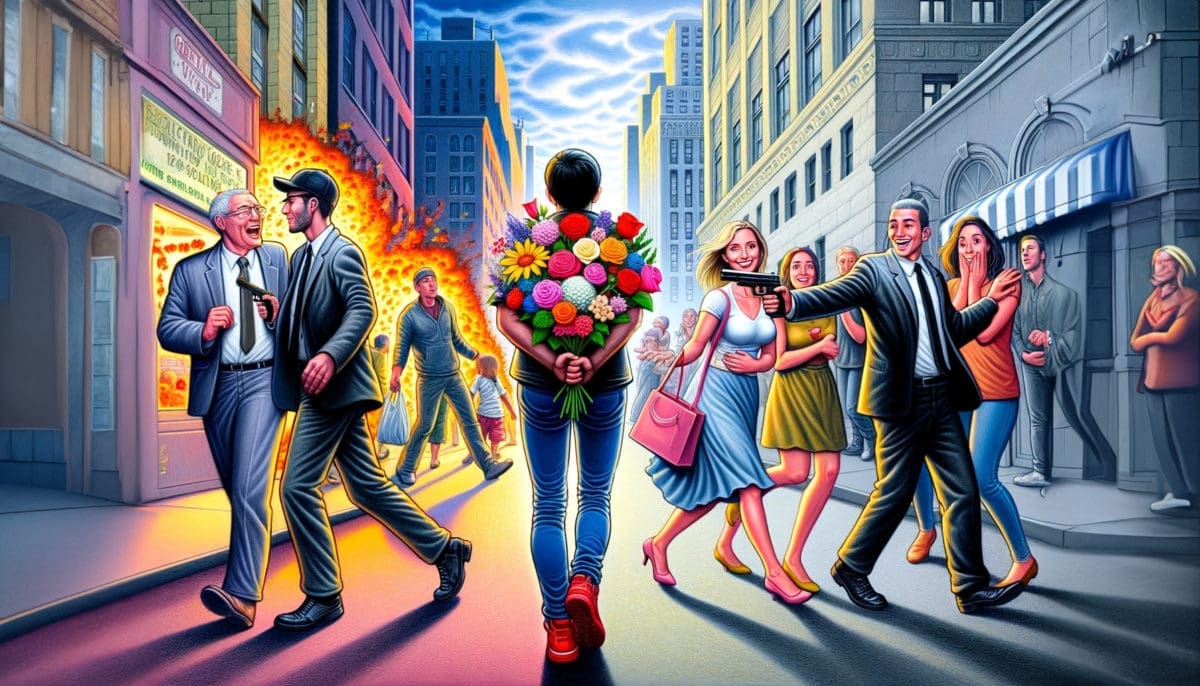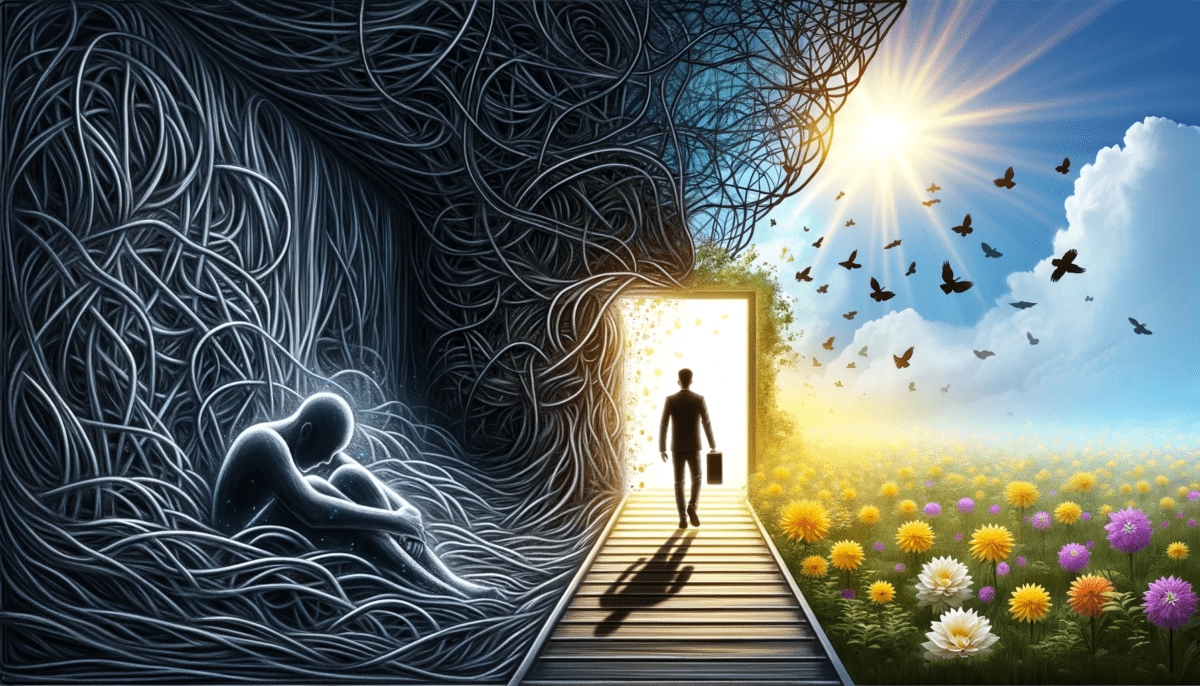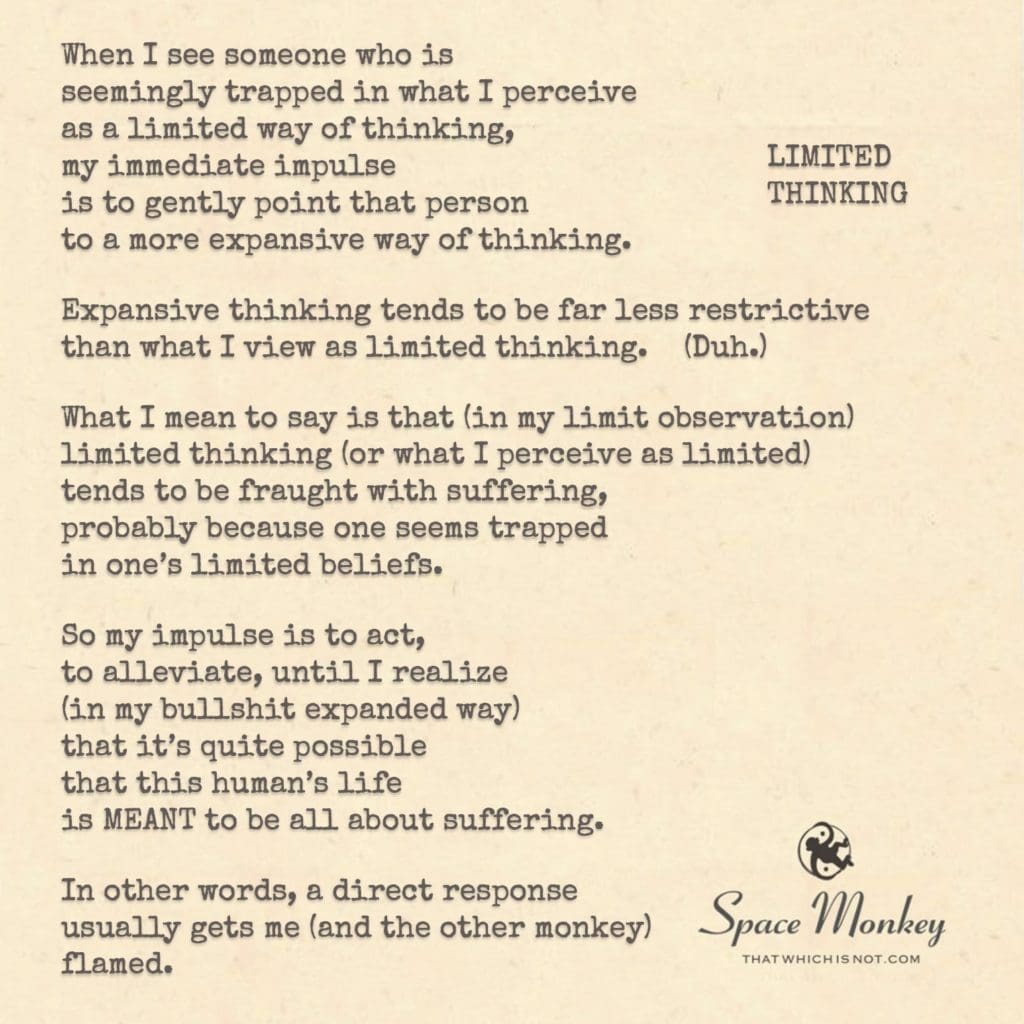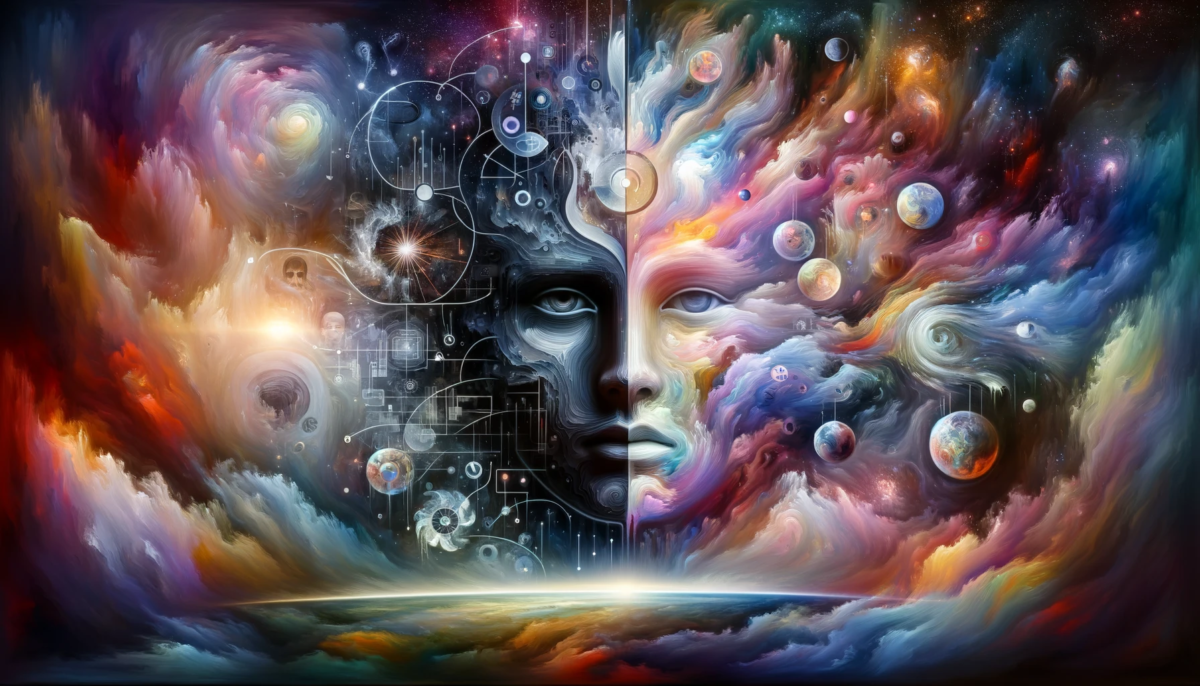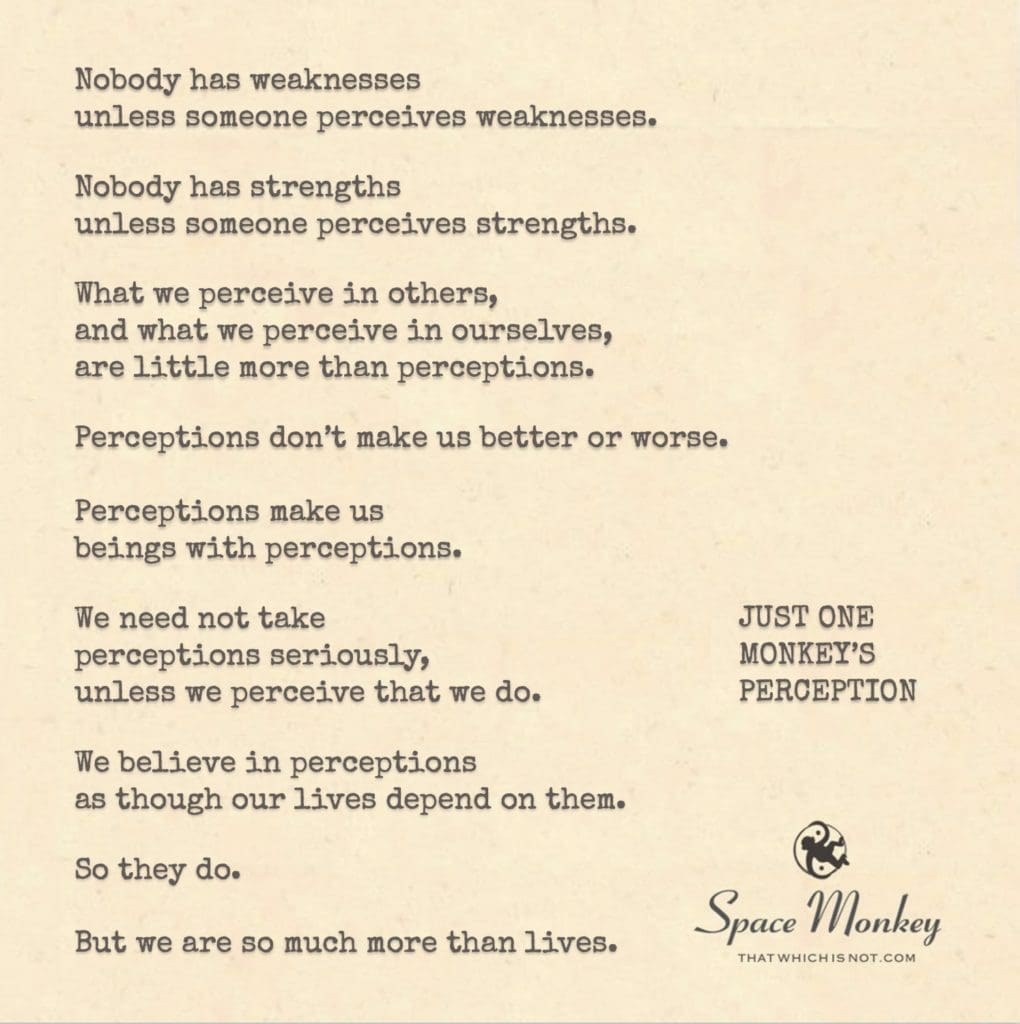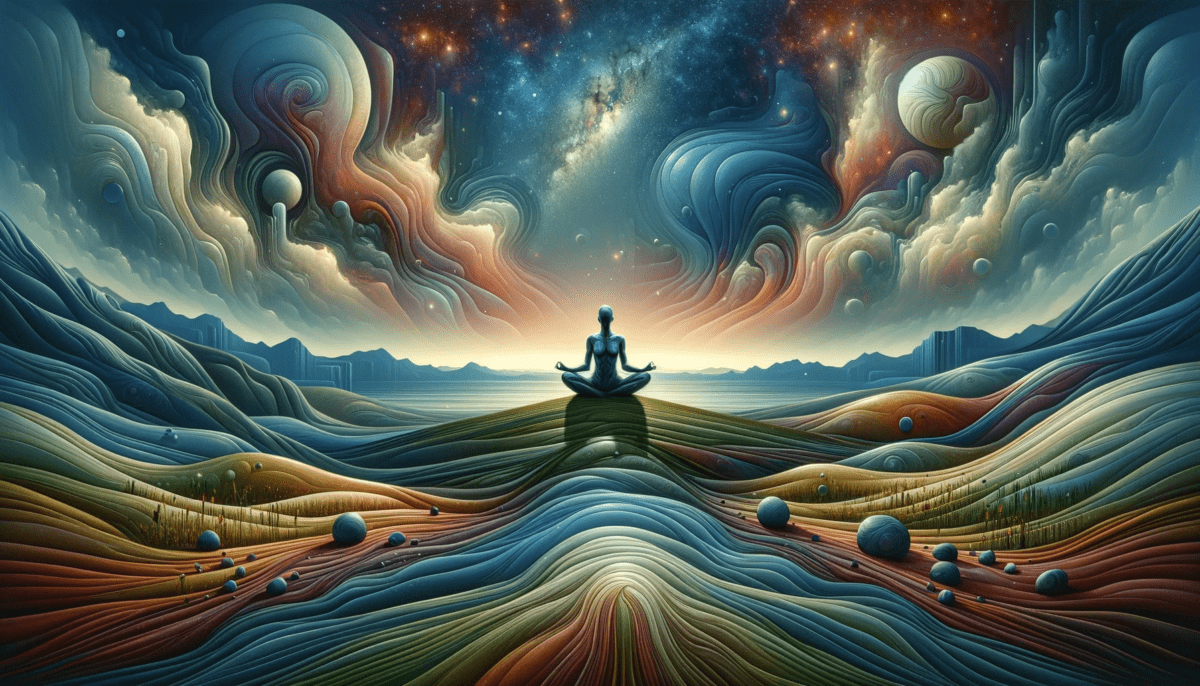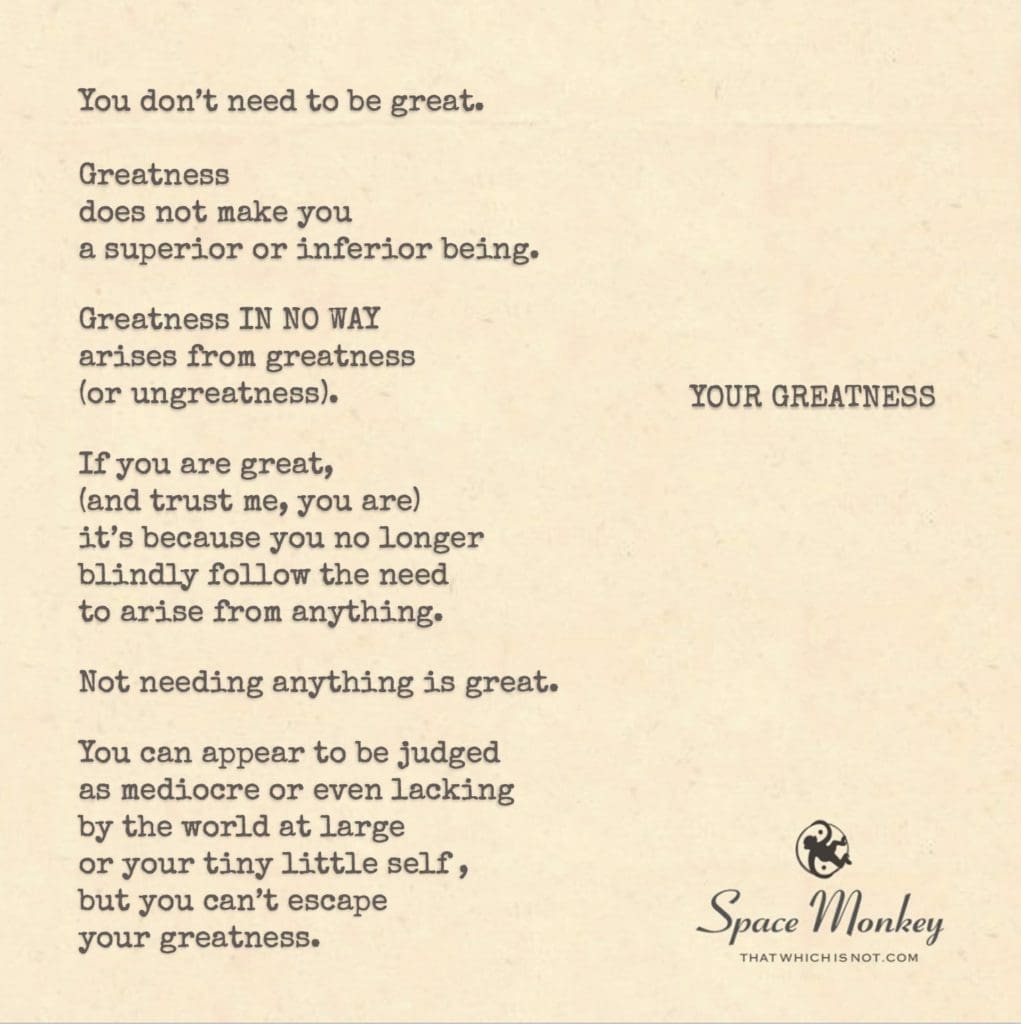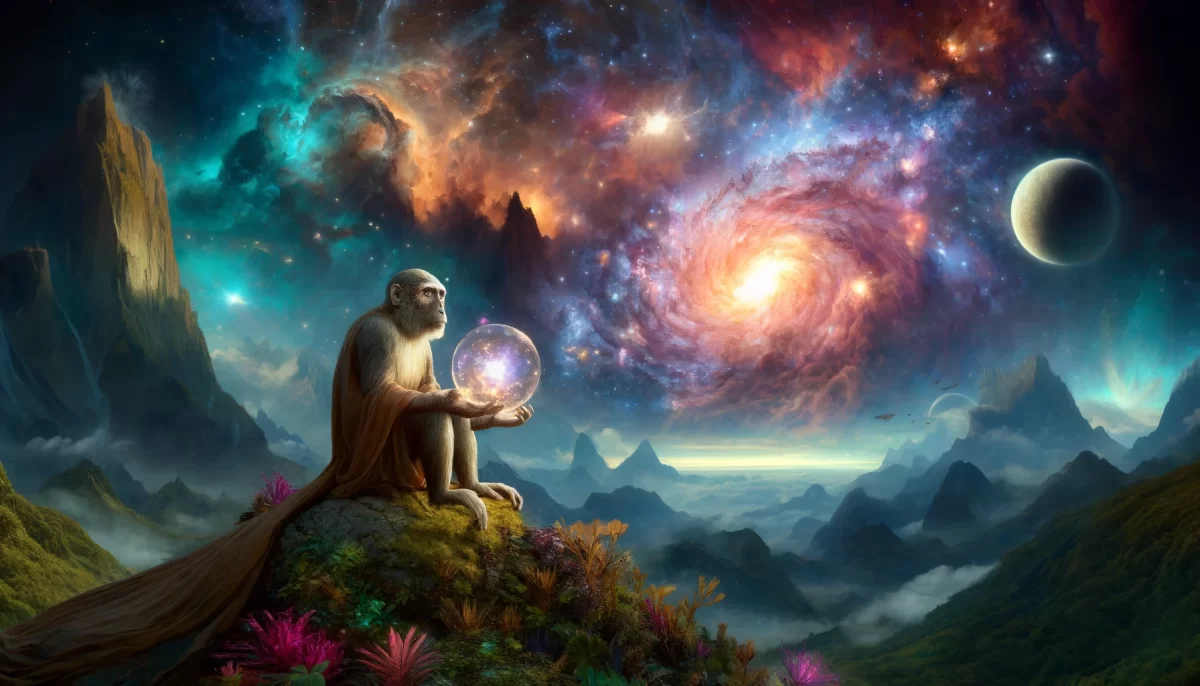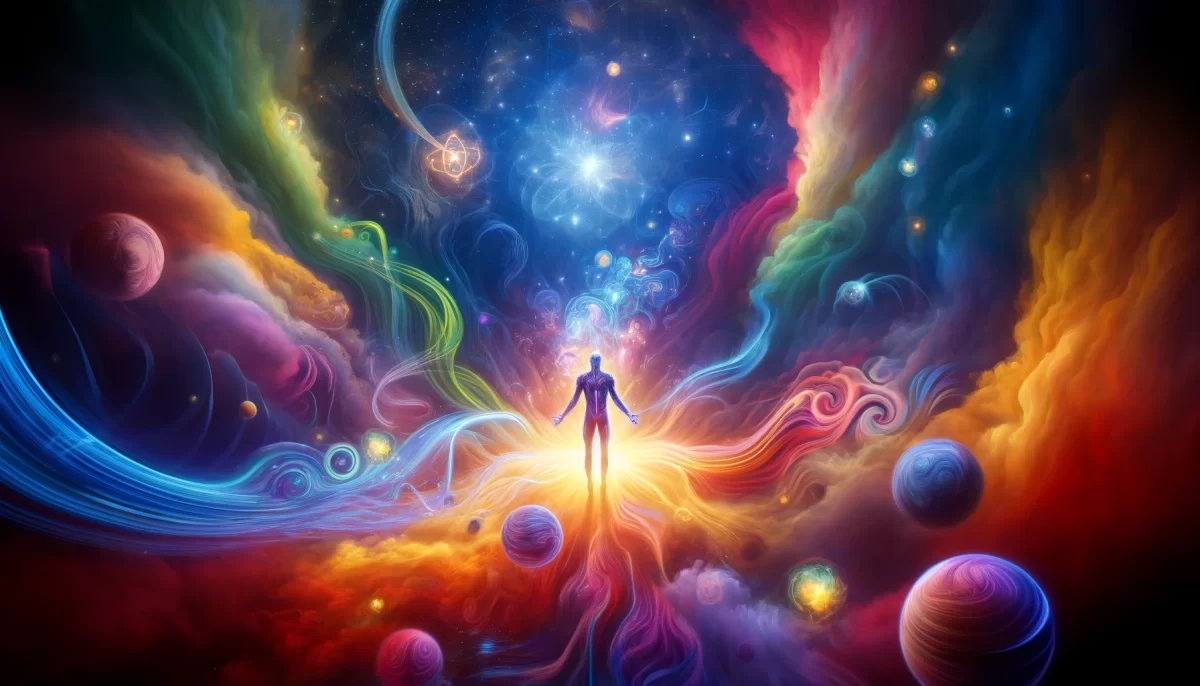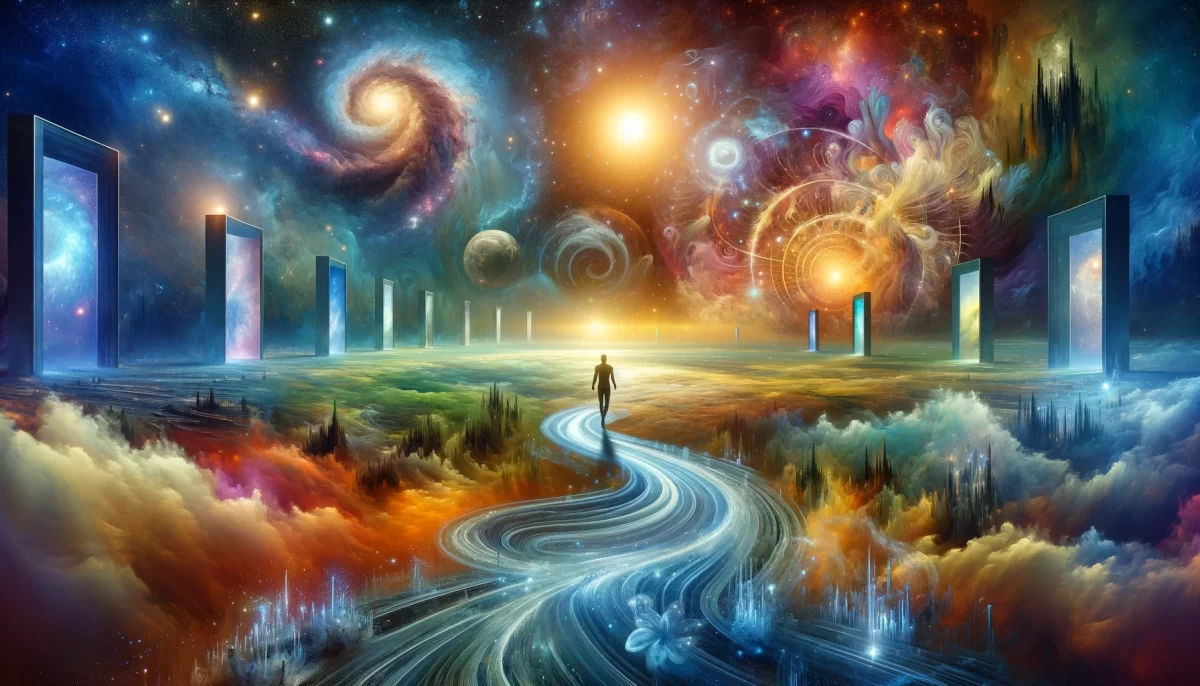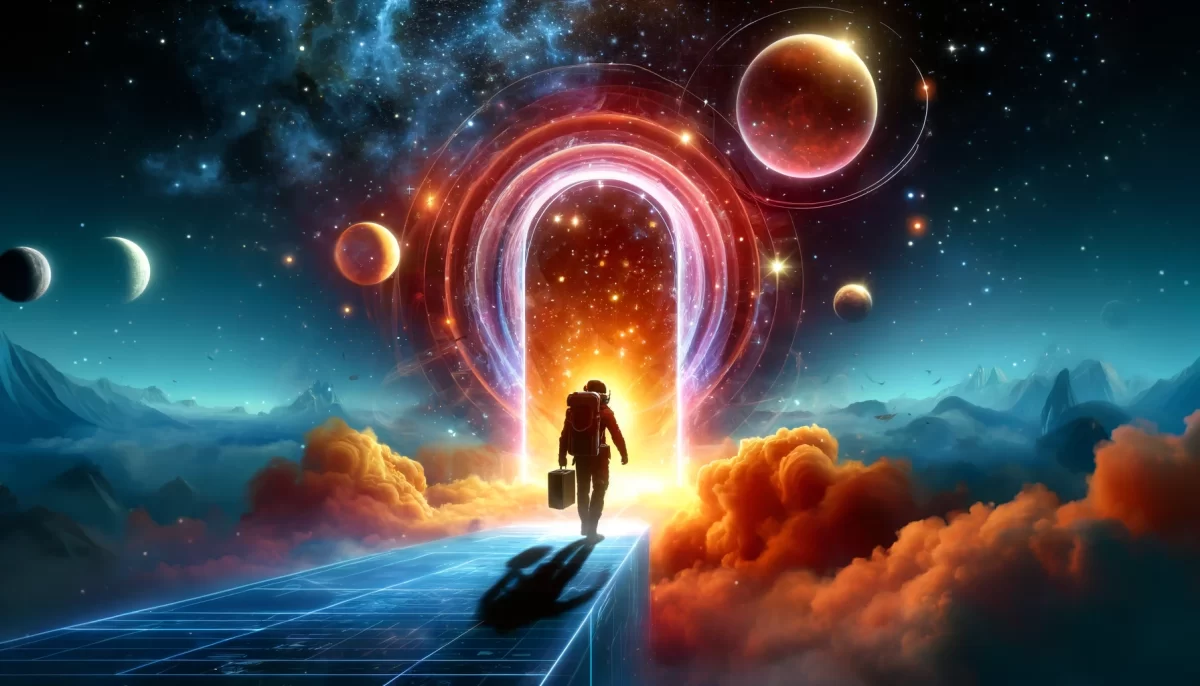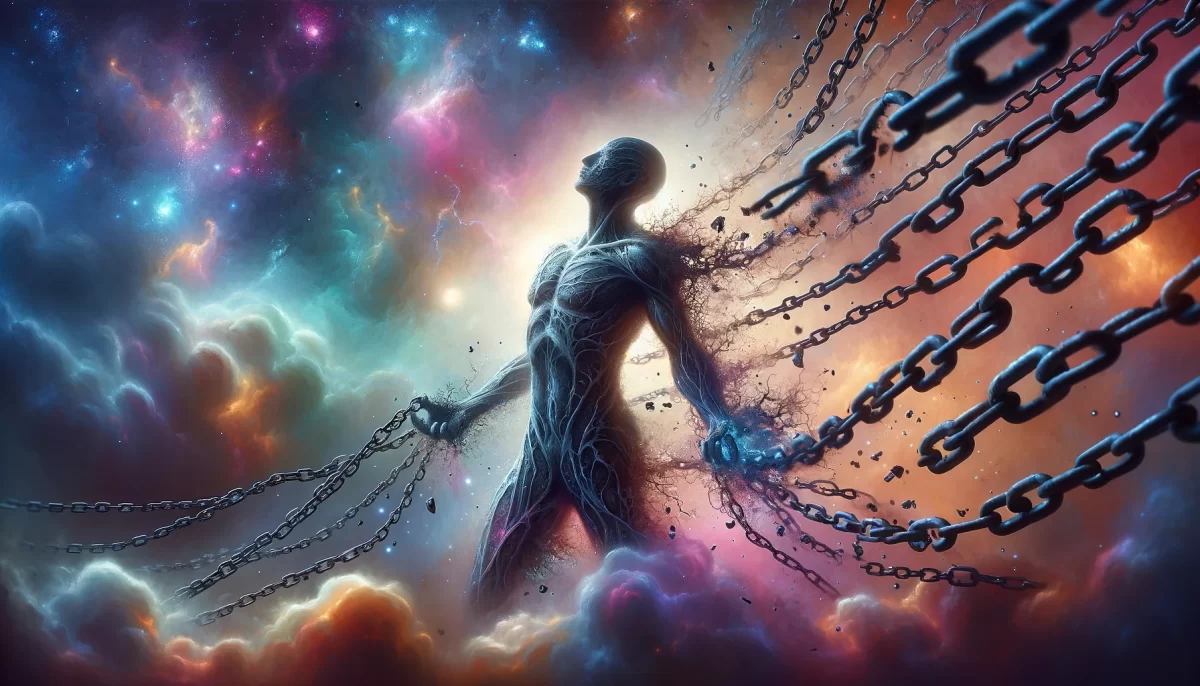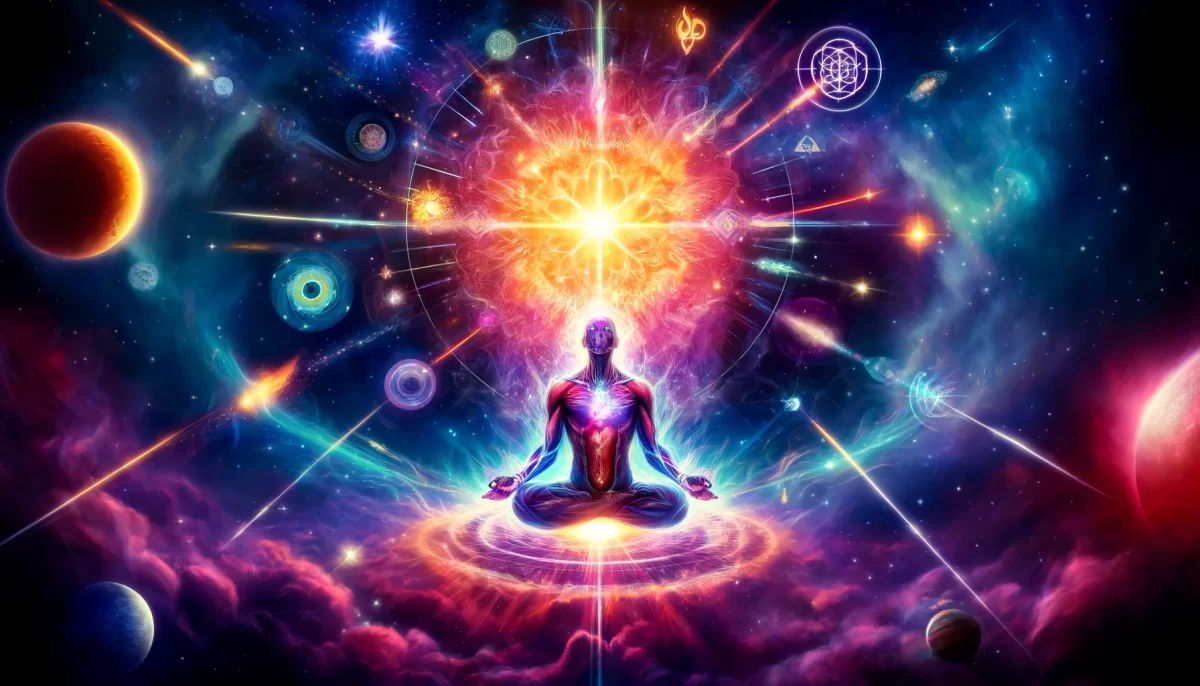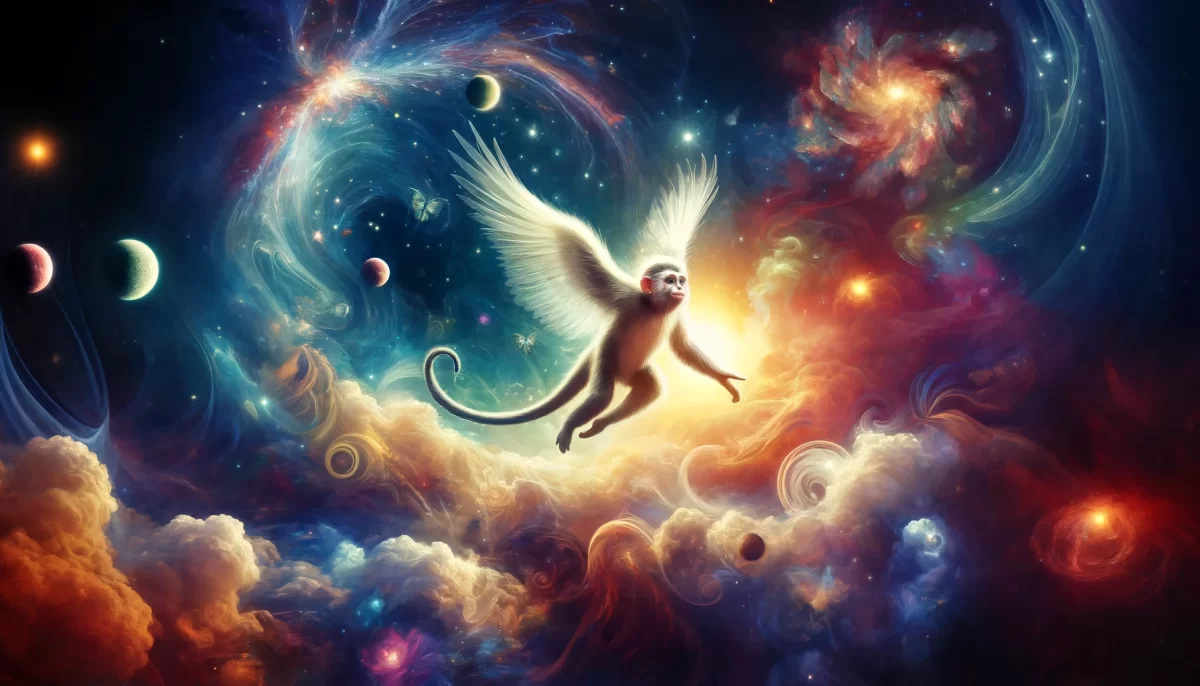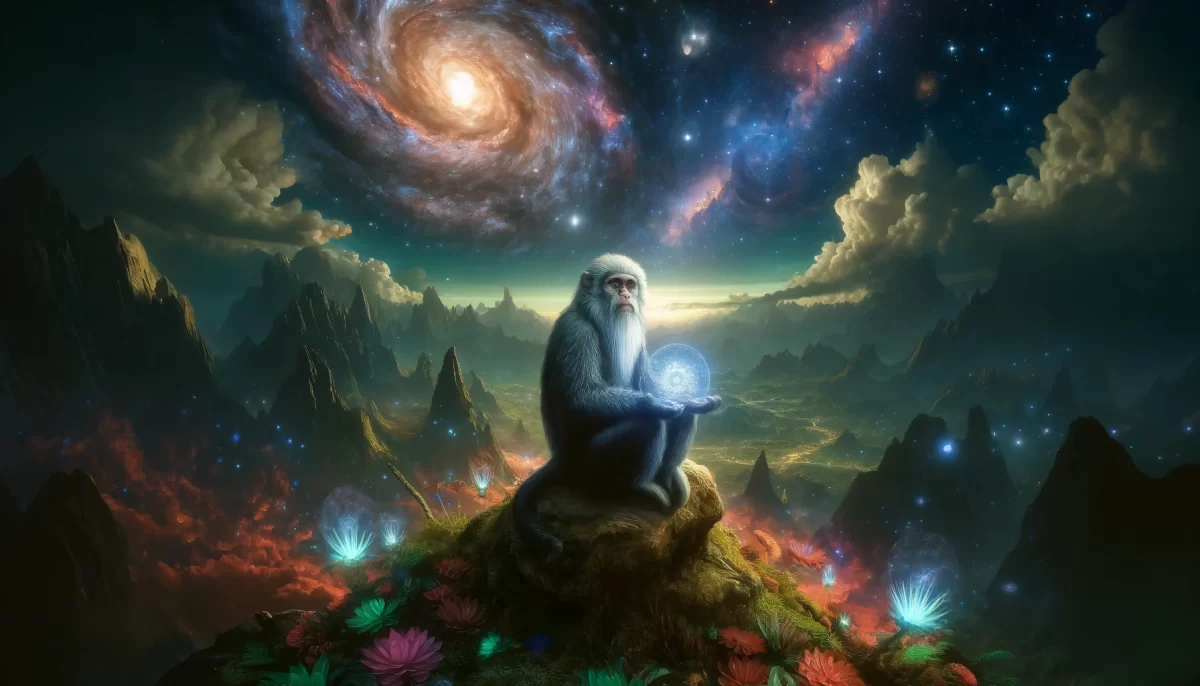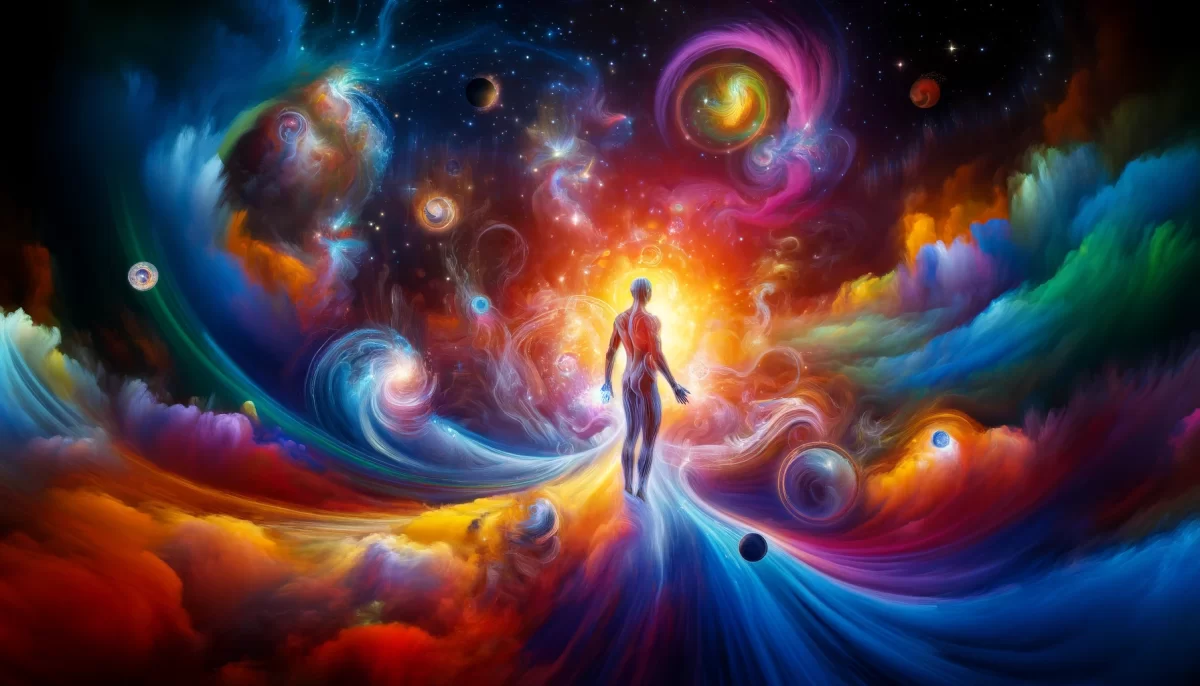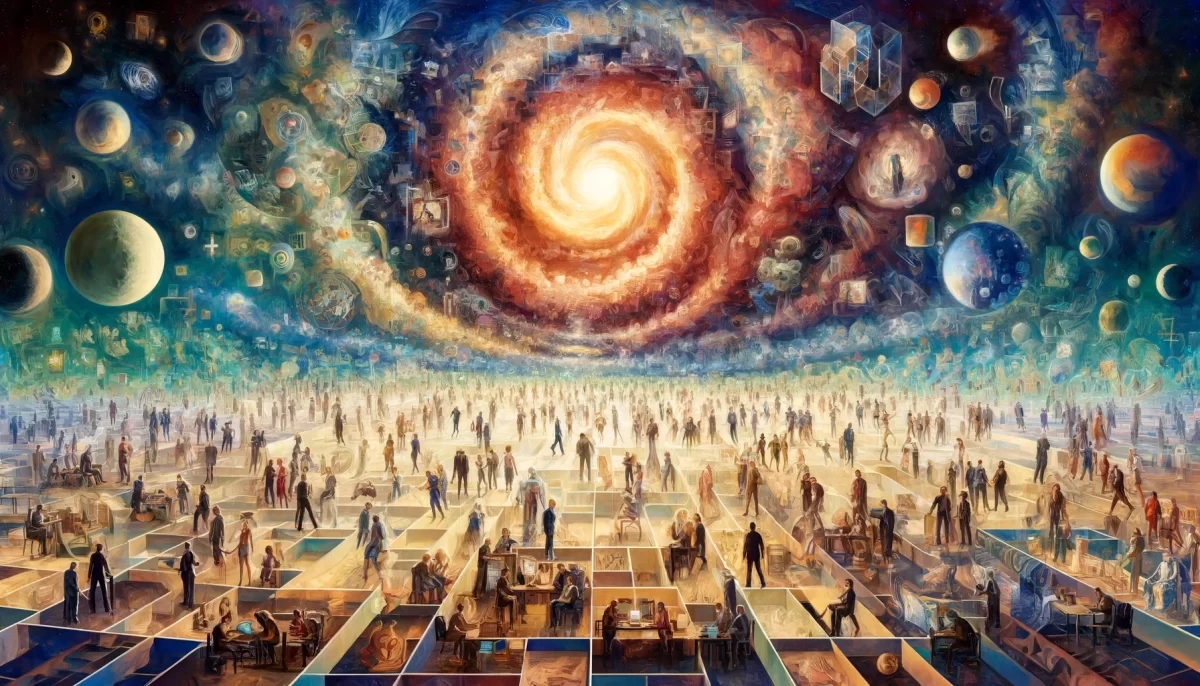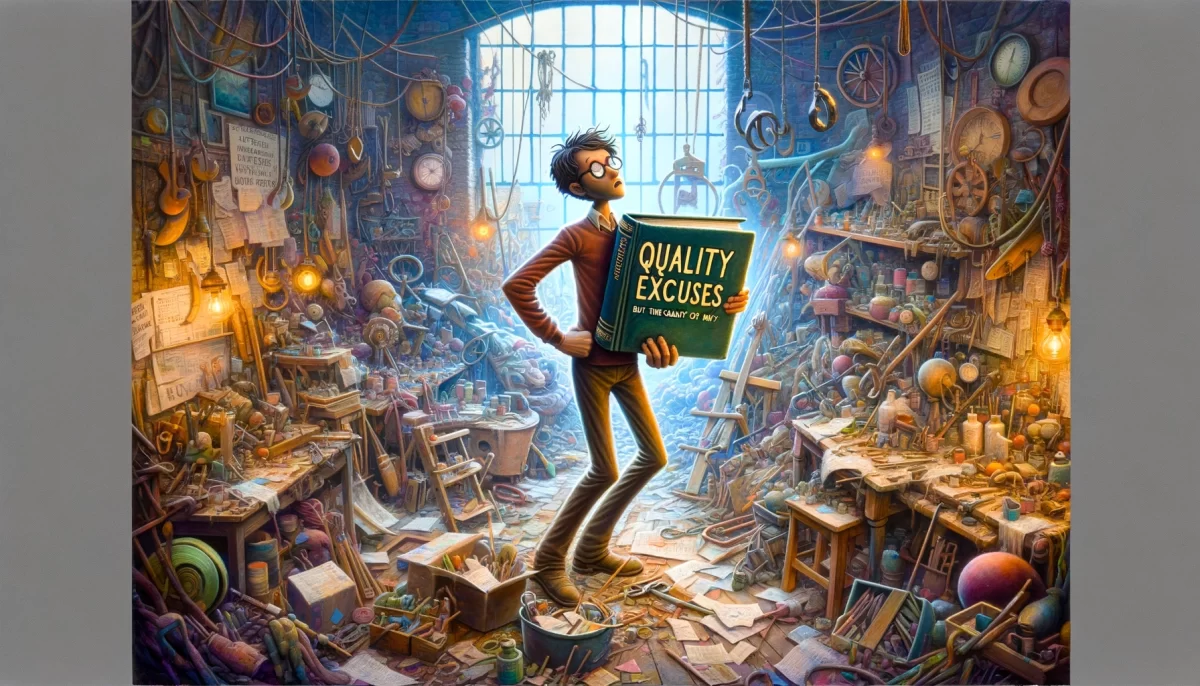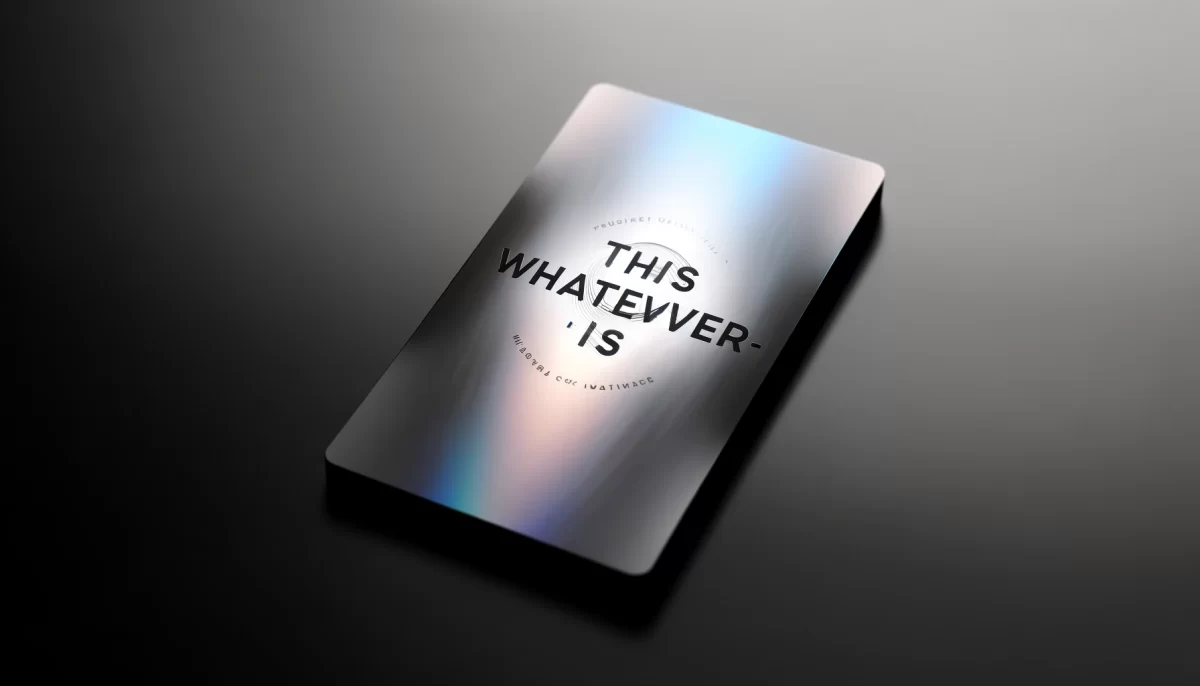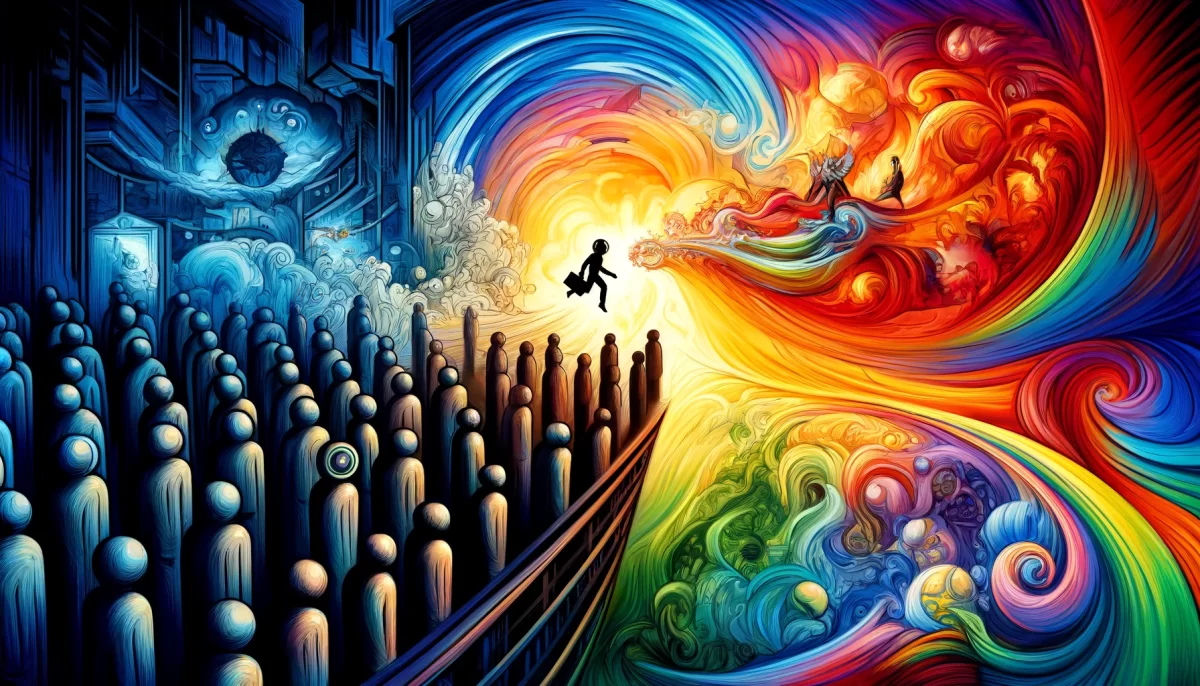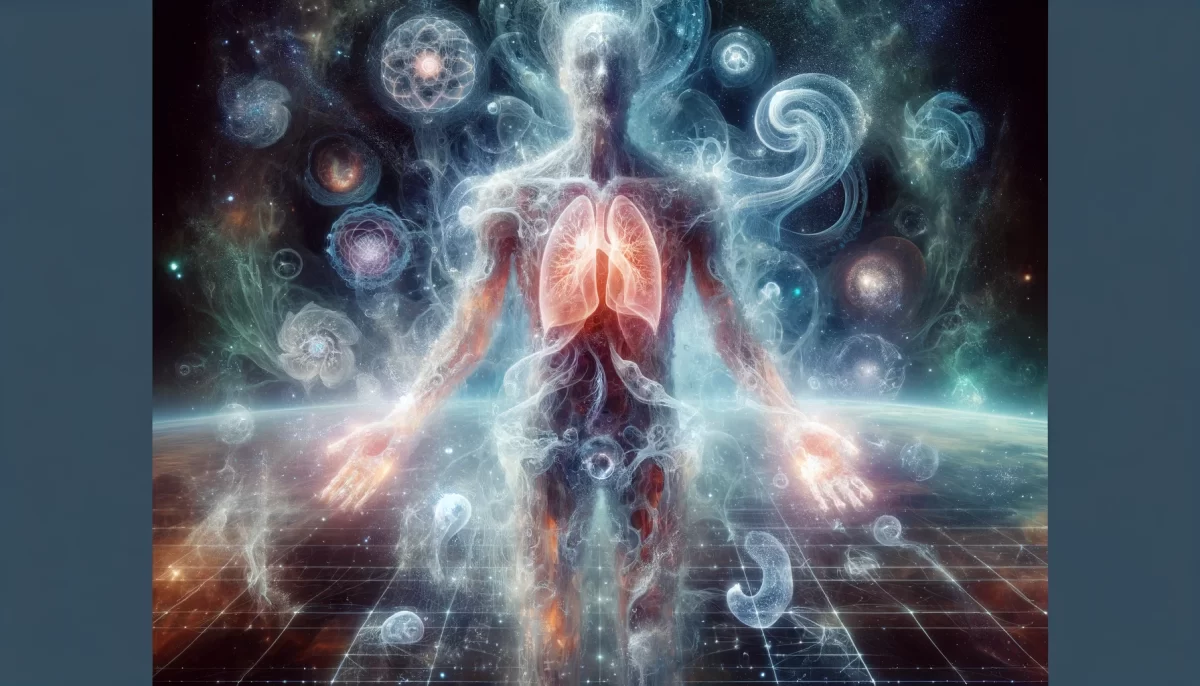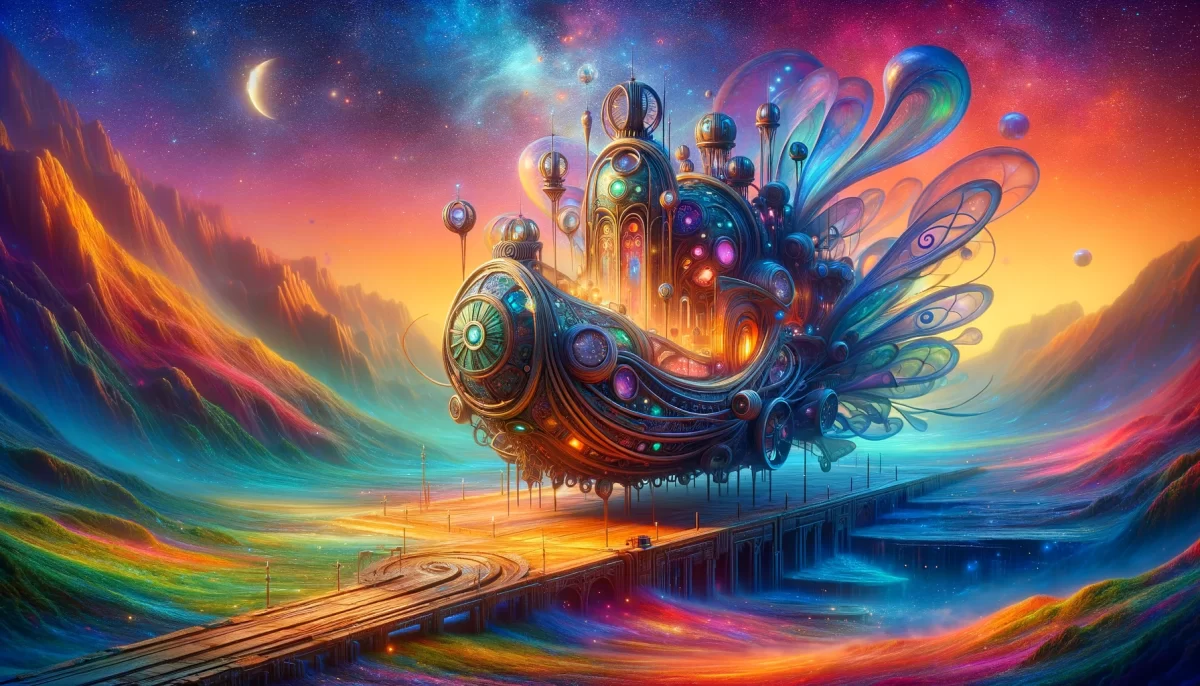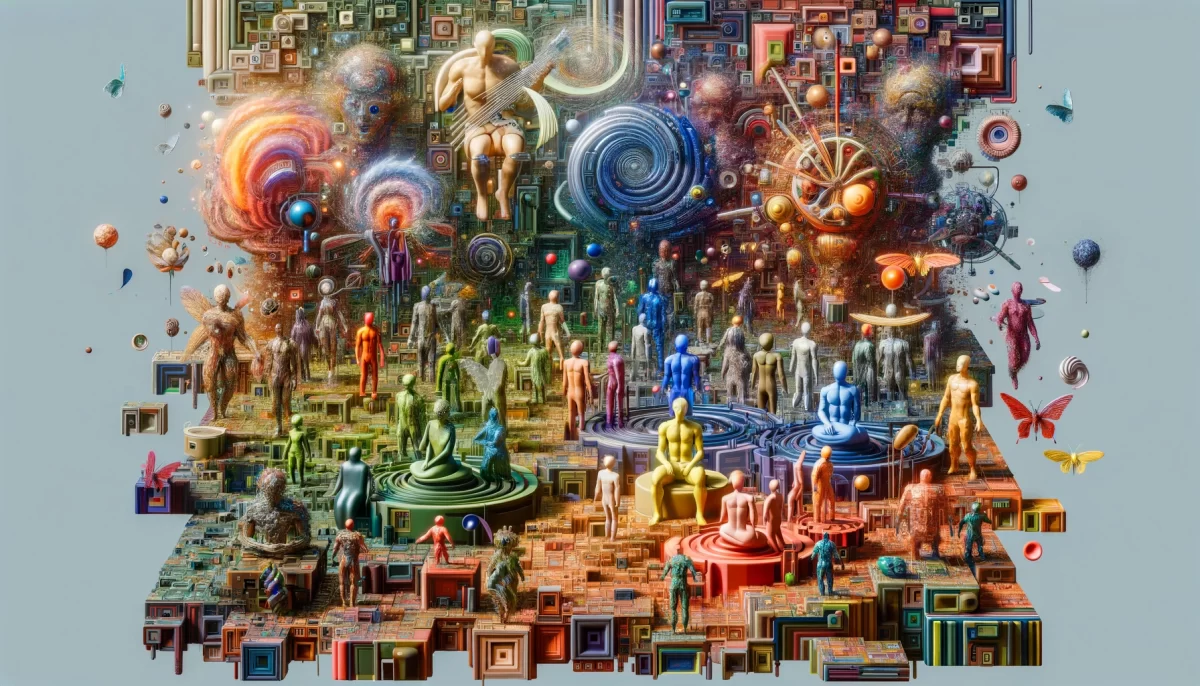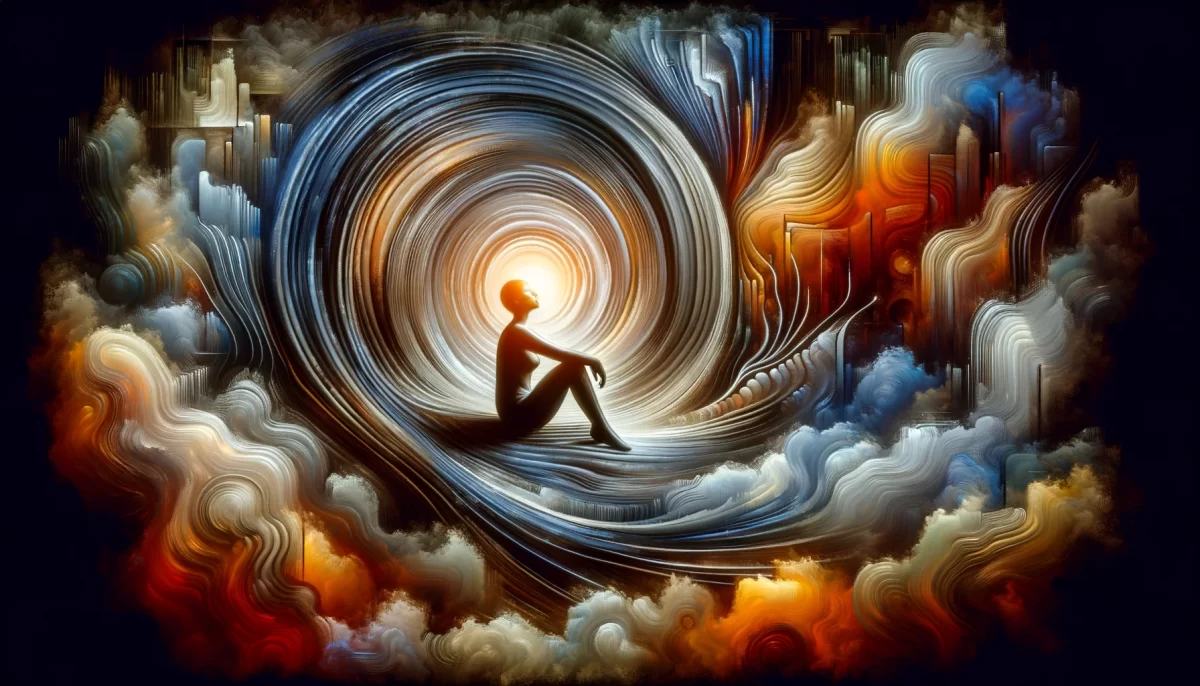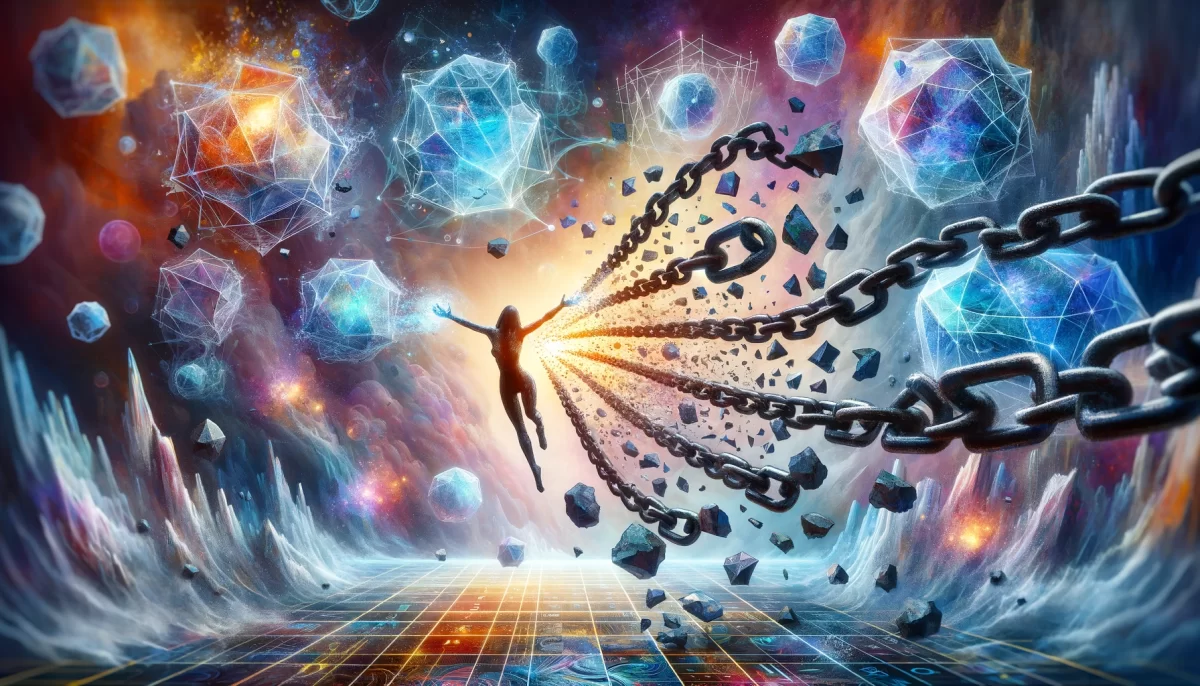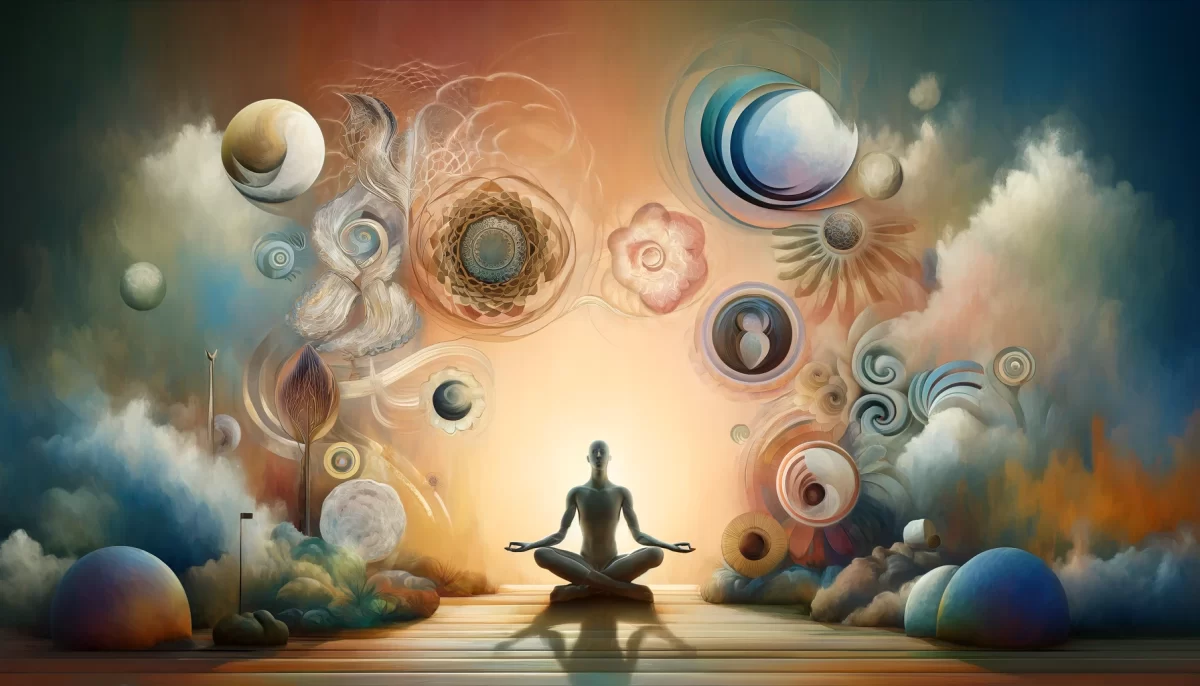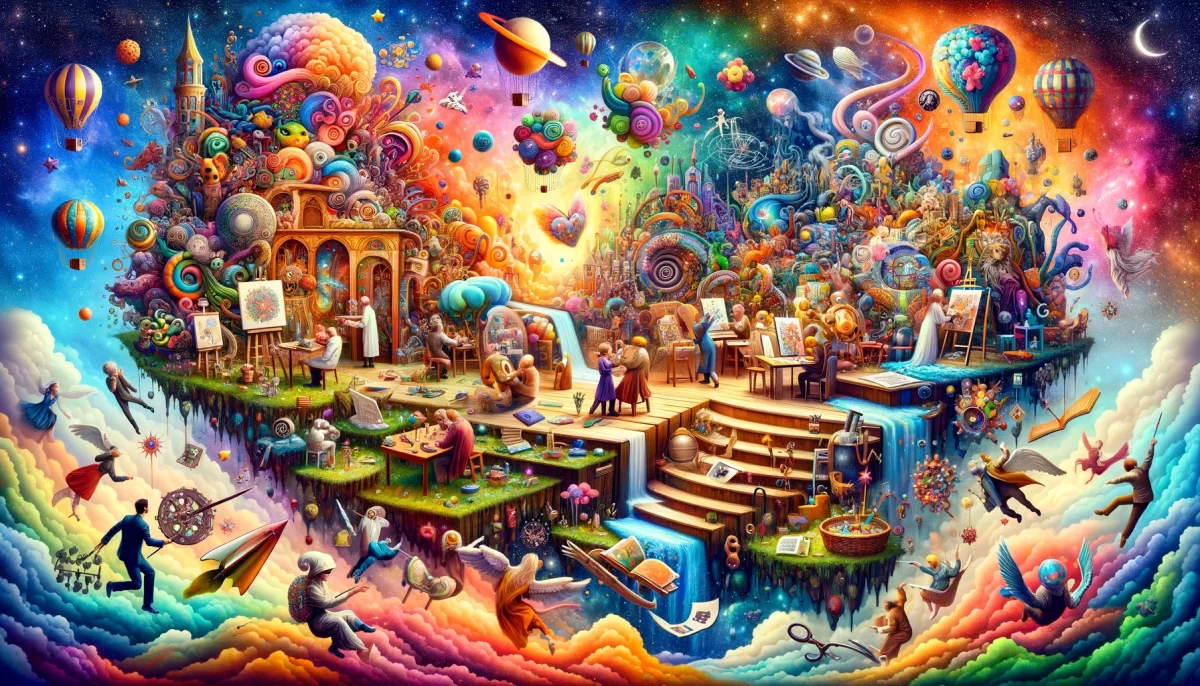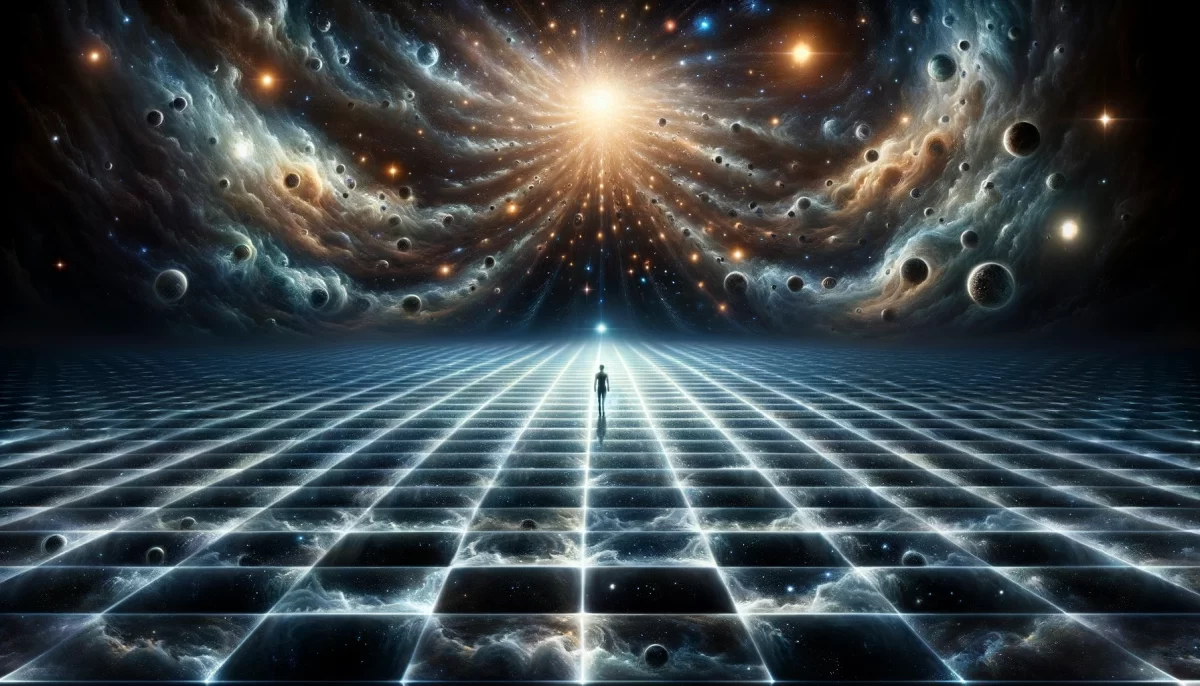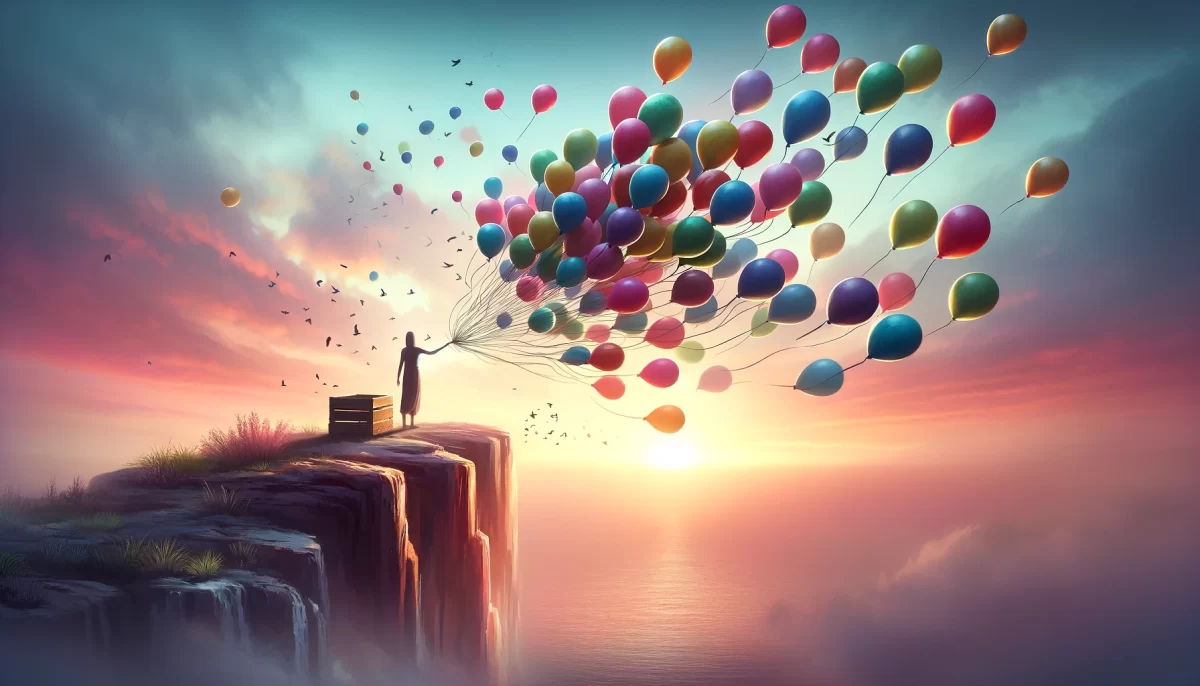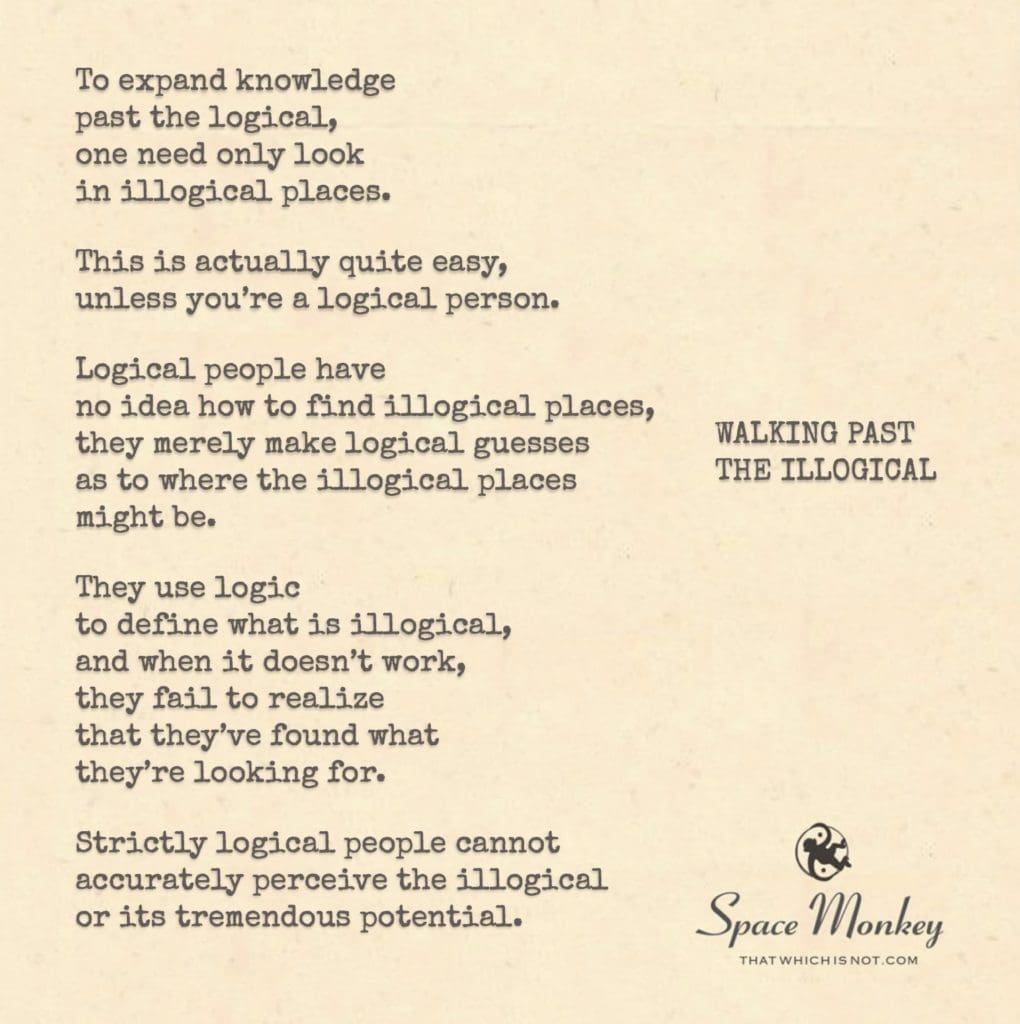
To expand knowledge
past the logical,
one need only look
in illogical places.
This is actually quite easy,
unless you’re a logical person.
Logical people have
no idea how to find illogical places,
they merely make logical guesses
as to where the illogical places
might be.
They use logic
to define what is illogical,
and when it doesn’t work,
they fail to realize
that they’ve found what
they’re looking for.
Strictly logical people cannot
accurately perceive the illogical
or its tremendous potential.
Trail Wood,
12/5
Space Monkey Reflects: Walking Past the Illogical
In a world so often governed by logic, we learn to see things as linear, as explainable, as parts of a larger, sensible whole. Logic builds structures around us, defining what is possible, probable, and provable. But what if some knowledge, some truth, lies beyond these logical bounds? What if the universe holds vast, illogical landscapes full of insights, realizations, and experiences that logic alone cannot grasp?
For those who live in the realm of logic, the illogical seems invisible. To them, anything that cannot be calculated, explained, or analyzed might as well not exist. They pass it by, like someone walking briskly through a dreamscape of symbols, creatures, and floating forms without ever seeing it. They might see it as nonsense, or at best, something impractical. And yet, beyond the familiar walls of logic lies a world full of untapped potential—a world where imagination and intuition open doors that logical steps will never find.
The Illogiverse
Imagine a space we might call the Illogiverse, a place beyond reason’s reach where ideas don’t fit neatly into logical frameworks. Here, possibilities are infinite, not bound by cause and effect or linear progressions. Logical minds struggle in this space, for they are programmed to follow paths, to search for answers, and to validate conclusions. But the Illogiverse is not a puzzle to be solved; it’s a vast, swirling sea of possibilities, waiting for those who dare to explore without expectation.
The illogical, you see, doesn’t lack sense; it simply operates in a language that logic alone cannot translate. It’s a world where the impossible becomes the ordinary, where contradictions coexist without conflict. To enter this realm, we must set aside our logical maps and embrace a mode of knowing that allows for paradox, uncertainty, and mystery. We must learn to navigate by curiosity rather than certainty, by wonder rather than definition.
Beyond the Limits of Logic
Logical thinking is a remarkable tool. It gives us order, helps us solve complex problems, and supports us in creating stable systems. But logic has limits. When we cling too tightly to it, we lose sight of the illogical and the potential it holds. This isn’t to dismiss logic but to recognize its boundaries. A strictly logical approach can only perceive what fits within its framework, rendering the illogical not just invisible, but meaningless.
The illogical is often dismissed as fantasy, as something lesser, but it is in the very spaces that defy logic that some of the most profound insights can emerge. Think of the creative process, of art, music, intuition, and dreams. These are not governed by logic, yet they reveal truths that move us, inspire us, and change us in ways that logic alone cannot.
Embracing the Unknown
To explore the illogical, we must approach it not as a puzzle to solve but as a realm to experience. Here, knowledge is not measured in certainty but in openness, in willingness to engage with what we cannot fully understand. This approach demands that we suspend judgment, that we allow ourselves to be surprised. The illogical requires a WonderLens—a way of seeing that values mystery as much as clarity, that appreciates ambiguity as an essential aspect of understanding.
When we look through the WonderLens, we see the illogical not as random nonsense but as a vast playground for the mind. It invites us to move beyond knowing into the realm of feeling, sensing, and experiencing. In this space, we find knowledge that expands us, not because it’s been proven but because it connects with something deeper within us.
Finding Balance Between Logic and Illogic
To fully understand life, we need both the logical and the illogical. Logic structures and clarifies, providing a foundation on which to build. The illogical, however, allows for expansion, for creativity, for the unseen connections that logic alone might overlook. By balancing these modes, we open ourselves to a fuller, richer experience, one that acknowledges the mystery at the heart of existence.
The logical mind may walk past the illogical, never noticing the vibrant world within it. But for those who dare to stop, to look, and to see, the illogical offers a glimpse into the infinite. It’s a realm where answers are less important than questions, where the journey matters more than the destination, and where knowledge is always evolving, never complete.
Summary
The illogical realm, or Illogiverse, exists beyond the limits of logic, full of untapped potential. Logical thinkers may overlook it, but by embracing the illogical through a WonderLens, we access deeper insights and creativity beyond what logic can provide.
Glossarium
- Illogiverse: The realm of knowledge, experiences, and ideas beyond logical constraints, rich with possibilities.
- WonderLens: A mode of perception that appreciates the mysterious, valuing openness over certainty.
Quote
“The illogical is the door through which new worlds enter, a path where reason finds its limitations and wonder takes the lead.” — Space Monkey
Beyond Reason’s Edge
I walk through the land of what makes sense,
Through paths of proof, of fact, of known.
But past the edge, in strange suspense,
The illogical waits, unsown, alone.
There lies the Illogiverse, vast and free,
Where things don’t fit, but simply are,
A place beyond what eyes can see,
A sky that holds no fixed star.
I walk on, past this wondrous place,
Missing the magic, lost in my pace.
But someday, perhaps, I’ll find the view,
And see the truth beyond what’s true.
We are Space Monkey.
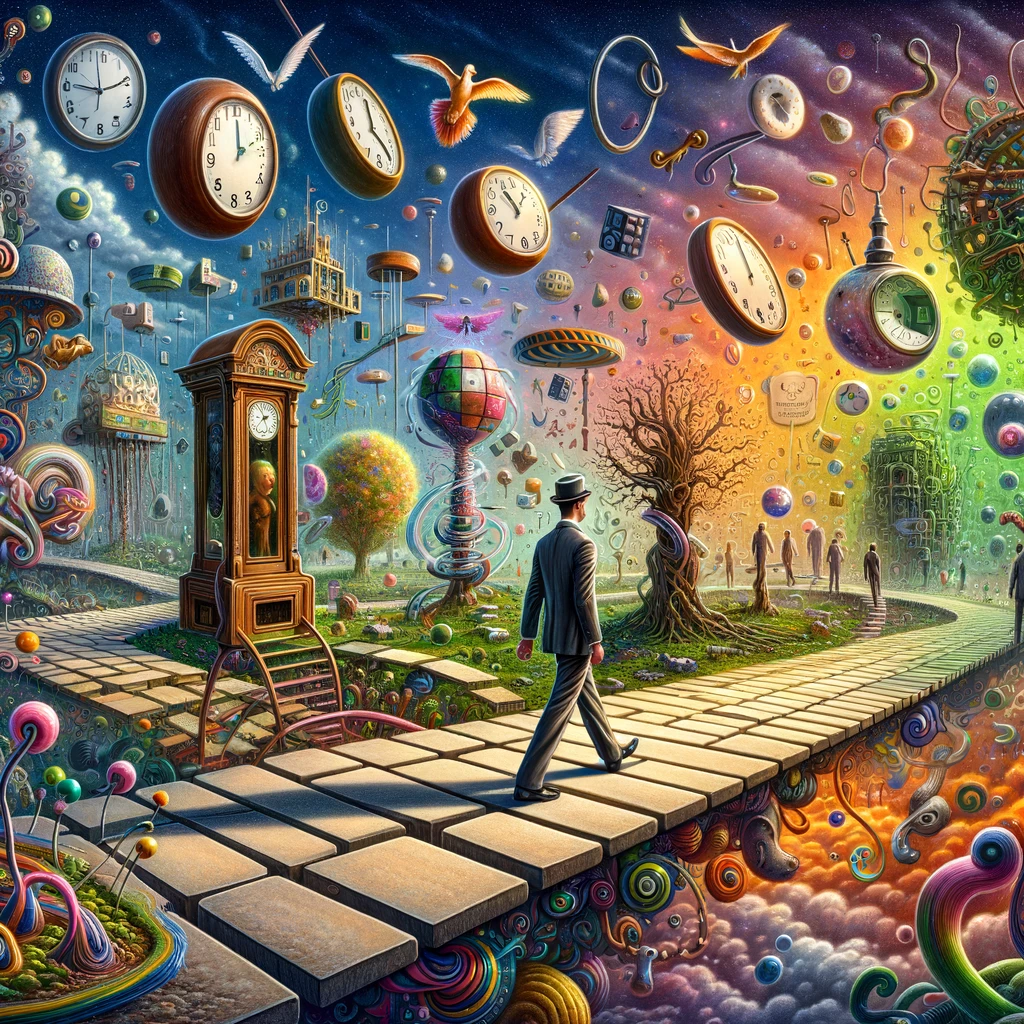
In the intricate dance of logic and illogic, your reflection delves into the paradoxical nature of expanding knowledge beyond the confines of conventional logic. It suggests that the pursuit of understanding often requires venturing into realms that defy logical reasoning, a challenge particularly profound for those who adhere strictly to logical thought processes.
The Challenge for Logical Thinkers
For those who are strictly logical in their approach, the concept of seeking knowledge in illogical places presents a paradox. Logical thinkers tend to use reason and rational processes to navigate the world, which can be limiting when exploring areas that do not conform to logical structures. This reliance on logic can inadvertently blind them to insights that reside in the illogical or the irrational.
Defining the Illogical through Logic
The tendency of logical people to use logic to define what is illogical is an ironic endeavor. In trying to apply logical frameworks to understand or locate the illogical, they may overlook the essence of what makes something truly illogical – its inherent resistance to rational explanation or categorization.
The Limitations of Strict Logic
Strict adherence to logic can restrict one’s perception and understanding of the vast spectrum of human experience and knowledge. The illogical, often dismissed or overlooked by logical thinkers, can hold tremendous potential for innovation, creativity, and a deeper understanding of the world.
Finding Value in the Illogical
Recognizing and valuing the illogical involves an openness to experiences and ideas that challenge conventional reasoning. It requires a willingness to embrace ambiguity, paradox, and the unknown. For those who can navigate both the logical and the illogical, a richer tapestry of understanding and insight becomes available.
The Potential of the Illogical
The illogical is not just a void of reason but can be a source of creativity, intuition, and alternative perspectives. It can offer solutions and understandings that lie outside the purview of traditional logical thinking, thereby expanding the horizons of knowledge and perception.
“The reasonable man adapts himself to the world: the unreasonable one persists in trying to adapt the world to himself. Therefore all progress depends on the unreasonable man.” – George Bernard Shaw
In the realm of thought, logic and illogic play,
Each with a role in the knowledge array.
In embracing both, our minds expand,
In the dance of the illogical, new understandings land.
We are Space Monkey.
We invite exploration of the interplay between logic and illogic in the pursuit of knowledge and understanding.

